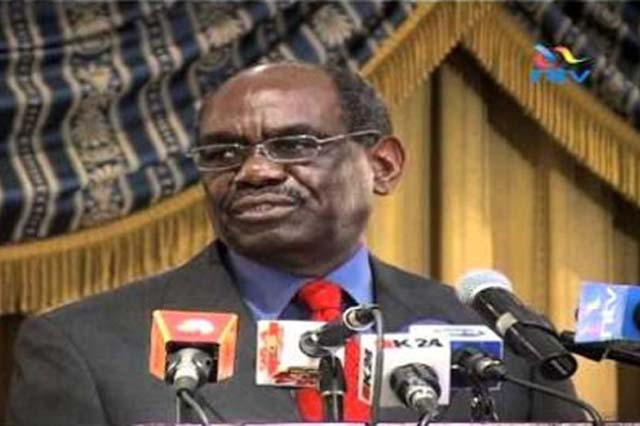
This article was originally published by Daily Nation on June 11, 2015
Why Kenya must accede to arms treaty
During the 67th session of the General Assembly of the United Nations, the Arms Trade Treaty (ATT) was adopted.
The treaty was opened for signature at the UN headquarters in New York from June 2013 until it entered into force on December 24, 2014, after the requisite 50 countries ratified it.
The treaty underlines “the need to prevent and eradicate the illicit trade in conventional arms and to prevent their diversion to the illicit market, or for unauthorised end use and end users, including in the commission of terrorist acts”.
It is estimated that there are about 700,000 small arms and light weapons held illegally in Kenya.
This treaty is a historic milestone in addressing the illicit trade of small arms and light weapons and certain other conventional weapons. To Kenya’s credit, our country was among the seven United Nations member states that co-sponsored the negotiation of the ATT when it was first introduced at the United Nations General Assembly in 2006. The other six countries are Argentina, Australia, Costa Rica, Finland, Japan, and United Kingdom.
In fact, throughout the long and many stages of negotiations of the ATT lasting nearly nine years, Kenya played, in the words of Foreign Affairs Cabinet Secretary Amina Mohammed, “a key and robust role in its realisation”.
50 SIGNATURES
For example, the Kenyan Parliament, in close collaboration with Parliamentarians for Global Action in New York, along with other prominent Kenya parliamentarians, collected 50 signatures from members of the 10th Parliament, affirming our support for the adoption of an ATT.
These signatures, along with over 2,000 others from MPs in 114 parliaments worldwide, were presented in a public ceremony to UN Secretary General Ban Ki-moon in New York in June, 2012.
It is instructive that as at June 8, 2015, 130 countries had signed the treaty and 69 had ratified it. Thirty African countries have signed the ATT and nine have ratified it.
Despite its earlier efforts, Kenya has remained conspicuously absent from the list of countries that have signed, ratified, or acceded to the treaty.
The Cabinet secretary for Internal Security, Maj Gen (Rtd) Joseph Nkaissery, a champion of peace initiatives in the Great Lakes Region, was recently quoted in the media as reaffirming “Kenya’s commitment to the Arms Trade Treaty, which will foster peace and security, putting a stop to destabilising arms flow to conflict areas within the region.”
Kenya continues to suffer the negative effects of unregulated trade in arms. Recent terrorist attacks and incidents of violence, including cattle rustling, banditry and other criminal activities, attest to the ever increasing need to close, through the ATT, the loopholes that permit criminals and terrorists to acquire and use dangerous weapons that maim and kill innocent civilians.
Of course the ATT will not solve all the problems of illicit trade in arms and weapons. Nevertheless, the treaty has the potential to see a major reduction in the flow of these weapons, which will be an important step in reducing global human suffering. Kenya should, therefore, rethink its position and join other world nations in acceding to the Arms Trade Treaty.
Mr Musila is the senator for Kitui.

